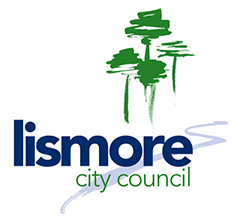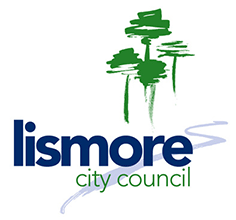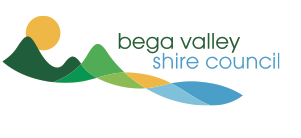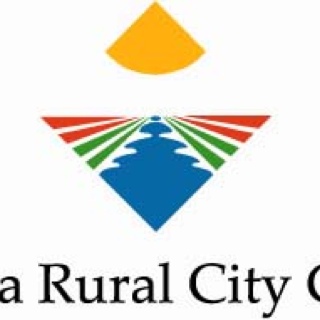Information
-
A trade waste site inspection is an inspection of a commercial or an industrial premises, with the aim of monitoring and auditing the liquid trade waste pre-treatment system for confirmation that the discharger is in compliance with the terms and conditions of an approval or liquid trade waste services agreement.
Routine site inspections are performed on a regular basis as part of the LWU’s due diligence responsibilities or as part of the conditions of approval or liquid trade waste agreement. All trade waste discharges shall be inspected at least once per annum. -
Liquid Trade Waste Reference Number
-
Site / Client
-
Location
-
Lot Section DP
-
Parcel number
-
Assessment number
-
Conducted on
Contact Details
-
Contact Person on the day
-
Business phone number
-
Business owners name
-
Business mailing address
-
Business email address
-
Photograph of front of busines
-
Re-inspections are required where incidents or breaches have been observed during this audit.
A re-inspection fee shall apply. The re-inspection may ascertain that :
* The non-compliance has been rectified;
* Procedures have been initiated to prevent re-occurrence;
* Steps have been taken to modify the pre-treatment;
* Steps in an Effluent Improvement Plan have been completed; &
* A discharge may or may not be from the premises as the result of a pollution inquiry
investigation such as a dumping incident.
Liquid Trade Waste Discharge Approval
-
Do you have a current approval to discharge LTW?
-
In order to conduct a valid site assessment in a conscientious and professional manner a copy of the relevant pages outlining the conditions of approval for discharge is necessary for auditing purposes.
-
Is there a print out of the determination (with approval conditions) on site?
-
Determination Expiry Date
Premises & Inspection Details
-
Business Type
- Cafe
- Takeaway
- Restaurant
- Coffee Shop
- Pizza Shop
- Delicatessen
- Hotel Restaurant
- Club Restaurant
- Motel & Restaurant
- Supermarket
- Butchery
- Aged Care Facility
- Fish Processing
- Sandwich / Salad Bar
- Ice Creamery
- Community Hall
- Commercial Kitchen
- Hospital
- Fast Food Outlet
- Motel / Minimal Hot Food
-
Classification
- A
- B
- C
- S
-
Category
- 1
- 2
-
Water Meter #
-
Meter size
- 20mm
- 25 mm
- 32 mm
- 40 mm
- 50 mm
- 80 mm
- 100 mm
-
Sewerage Treatment Plant Catchment
- South Lismore STP
- East Lismore STP
- Nimbin STP
- On Site Sewerage Management
-
Sewerage Pump Station catchment
-
Sewerage Pump Station catchment
- Allambie Drive
- Ashgrove Drive
- Barham Street
- Blue Hills
- Caldwell Avenue
- Donnans Road
- George Drive
- Gravity
- Heather Avenue
- Just Street
- Kadinia Street
- Millar Street
- Palmvale Drive
- Park Avenue
- Rous Road
- Wade Park
-
Sewerage Pump Station catchment
- Airport
- Brunswick Street
- Caniaba Road
- Colemans Point
- Dawson Street
- Fredericks Road
- Gerard Street
- Habib Drive
- Hollingsworth Creek
- North Lismore
- Rowing Club
- South Lismore
- Tuncester
Reason For Inspection
-
Reason
- New Discharger
- Initial Inspection
- Routine Annual Inspection
- Re-Inspection
- Investigation
- Sample taken
PRETREATMENT
Equipment Type
Grease Arrestor
-
Grease Arrestor: Required
-
Grease Arrestor: In Place
-
Grease Arrestor: Maintained
-
Grease Arrestor: Condition OK
-
Grease Arrestor: Compliant
-
Is there a tap within the vicinity of grease arrestor to aid in scour maintenance?
Floor Waste Baskets
-
Floor Waste Baskets: Required
-
Floor Waste Baskets: In Place
-
Floor Waste Baskets: Maintained
-
Floor Waste Baskets: Condition OK
-
Floor Waste Baskets: Compliant
Sink Screens
-
Sink Screens: Required
-
Sink Screens: In Place
-
Sink Screens: Maintained
-
Sink Screens:Condition OK
-
Sink Screens: Compliant
Other (please describe)
-
Other: Required
-
Other: In Place
-
Other: Maintained
-
Other: Condition OK
-
Other: Compliant
-
Additional notes
Containment Methods
-
STORMWATER INGRESS MITIGATION
-
Stormwater: Isolated from sewer
-
Stormwater: Roofing
-
Stormwater: Bunding
-
CHEMICAL / OIL STORAGE
-
Chemical / Oil Storage: Isolated from sewer
-
Chemical / Oil Storage: Roofing
-
Chemical / Oil Storage: Bunding
-
Additional notes
Housekeeping/other
-
Odours present
-
Housekeeping practices within approval
-
Site accessible
-
Waste disposal by NSW EPA approved contractor
-
Pits & screens clean
-
Activities within classification approval
-
Current Material Safety Data Sheets (MSDSs) available
-
Correct back-flow prevention device in place
-
Back-flow prevention device certification to Council current
-
Additional notes
FOLLOW UP REQUIREMENTS
General Comments
Information to be provided to Council
Further Action
-
Further action required
- Nil
- Reinspection
- Warning letter
- Improvement Notice
- Prohibition Order
- Penalty Notice
- Pending
-
Comments
Fees to be Charged
-
Apply Inspection fee
-
Fee
Inspection Conducted by
-
Officers Name
- William Lee
- Joe Morrissey
-
NB: Assessment report contains findings from date/time of inspection only
Untitled page
LIQUID TRADE WASTE INFORMATION
-
Trade wastewater from retail food businesses contains organic material that can cause odours and accelerated corrosion in our sewers. Solids can cause blockages in Councils sewerage system, upset treatment processes and damage pumps. Oils and grease can cause blockages, corrosion and affect Council’s treatment processes.
-
Council’s requirements and conditions for accepting trade wastewater helps to:
-
* protect people working in and around the wastewater system
-
* protect rivers, waterways and oceans from harmful discharges
-
* protect the wastewater system and treatment plants from damage
-
* encourage waste minimisation, cleaner production and water efficient practices.
-
Most commercial and service industries require some form of pre-treatment, such as a grease arrestor, which removes some of the grease and fats, before their liquid waste is allowed to enter our sewerage infrastructure. Lismore City Council does not own or maintain any of these pre-treatment devices. The permit owner is responsible for maintaining and repairing them according to a cleaning schedule set out and monitored by Lismore City Council.
-
Excess grease and fats in the sewerage system can increase the load on the treatment system, cause blockages and increase hydrogen sulphide generation. High concentrations of hydrogen sulphide can generate bad odours and cause acids to form which corrode sewerage pipes. The end result is odour problems, increased maintenance costs and reduced life of the system.
-
The goal of local trade waste control programs, therefore, is to promote an appropriate
service to industrial and commercial customers and to protect the community, the
environment, the sewerage collection system and the wastewater treatment process from
adverse effects which may occur when trade waste is discharged into a sewerage system.
This protection can be achieved by regulating trade waste generators and ensuring that
effective waste management practices and appropriate pollution control technologies are
used.










